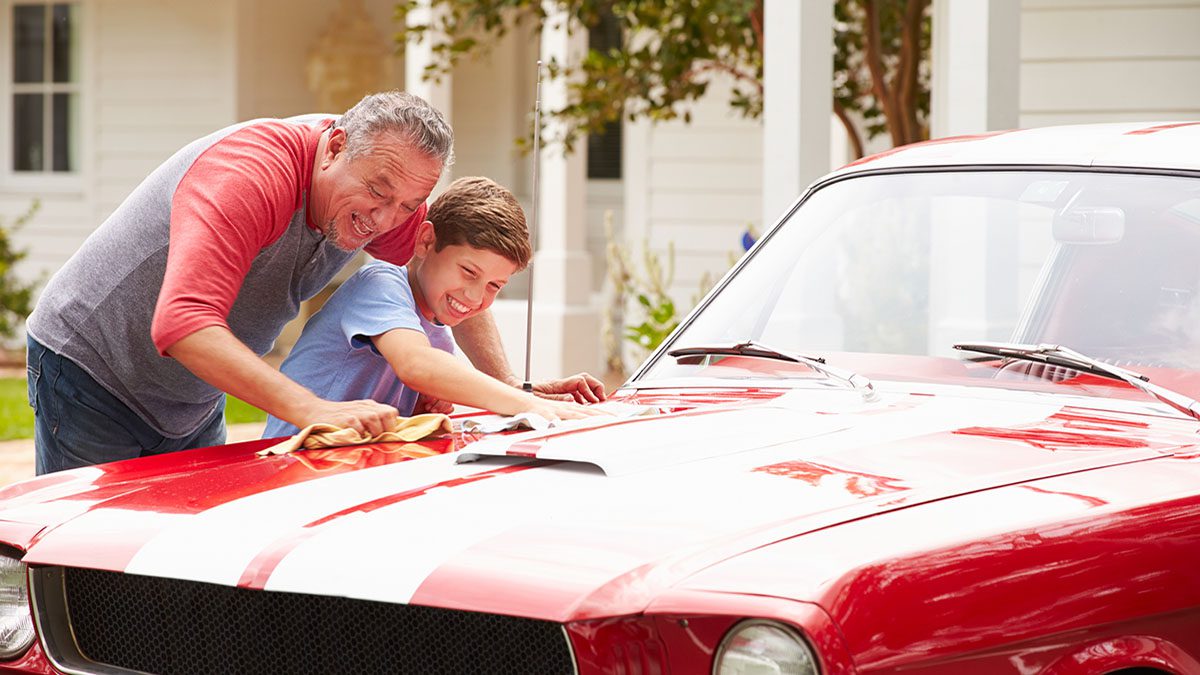What Is Classic Car Insurance?

Unfortunately for regular car owners, cars typically lose their value as they age due to depreciation. As a result, older cars don’t require comprehensive coverage, and they cost less to insure. However, unlike normal cars, classic cars increase in value as they age and require specialized insurance for their various needs. Learn what classic car insurance is and what constitutes a classic car.
Which Cars Are Considered Classic?
Classic car insurance is a special type of insurance for classic, antique, or vintage cars. While the definition of a classic car varies, classic cars are typically over 25 to 30 years old. However, there are some exceptions to this age limit. For example, if a car’s value is greater than its original selling price, it may be considered a classic car even if it’s younger than 25. Some vehicles that qualify as classics include:
Hotrods
Modified vehicles
Luxury or exotic cars
Classic trucks
Muscle cars
Vintage military vehicles
Antique tractors
Classic motorcycles
Does My Car Qualify for Classic Car Insurance?
In addition to your car’s age and value, there are other stipulations that need to be met before you qualify for classic car insurance. While different carriers have different guidelines, classic car owners usually need to meet the following criteria to get coverage:
Restricted use. Most classic car insurance policies don’t cover everyday tasks, such as commuting or running errands. If this is the case, your policy may include mileage limits and proof that your classic vehicle rarely leaves your garage. Some policies will require you to have a regular car to use as your primary vehicle.
Car shows and meetups. While your insurer may limit your car’s use outside of special events, car shows and meetups are usually included in your policy. However, not every insurer offers this coverage, in which case you would need specialized coverage specifically for car shows and other events. If you’re a classic car owner who takes their car to shows and meetups, check with your agent to see if your policy includes any travel restrictions that would impede your hobby.
Annual storage. Since your classic car isn’t your primary vehicle, insurers expect you to keep it securely stored in a garage or storage unit when it’s not in use.
A safe driving record. While you won’t be driving your classic car very frequently, insurance companies can still deny coverage to anyone with a bad driving record.
What Factors into a Classic Car Insurance Rate?
Classic car insurance includes some of the same facets as regular insurance, including property damage and bodily injury liability damage, but there are some notable differences in coverage.
The Value of Your Classic Car
Unlike regular car insurance where your vehicle is valued at its current market price, classic cars are unique and lack a set value. To determine the value of your classic vehicle, and subsequently how much your insurance will cost, you and your coverage provider will agree on a number together. If your classic car is damaged, your insurer will cover you up to the agreed upon price. You can also adjust your policy later if your car gains value as it ages.
Specialized Repairs and Transportation
Classic cars can be expensive to repair as they often use special order or rare parts. A classic car insurance policy typically covers these repairs and compensates you for their true value, even if it’s more expensive than the price of repairing a normal car. Any spare parts you need to order may also be covered, including new wheels, transmissions, or engine parts. If you’re in a pinch or you need to transport your classic car without driving it, your insurer will typically cover towing costs.
Visit our blog to learn more about insurance for older vehicles. If you’re looking for coverage for your classic or regular car, The General has a range of different policies for every driver, regardless of driving record or credit score. Get quoted for an affordable policy in under two minutes to see how much you can save.







